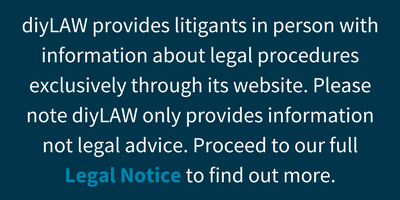Step 3: Going for Mediation
Wills and Probate
Mediation and other types of Alternative Dispute Resolution (ADR), such as discussions, negotiations and early neutral evaluations by independent third parties, have a crucial role is solving contentious inheritance claims. For most people, disputing a will or a trust or estate will be considered a matter of last resort.
In general, it is more advantageous if the parties to an inheritance dispute refer their differences to mediation. First, this will avoid the escalation of costs in court proceedings and thus, preserve the value received by the parties from the estate. Second, mediation is a less adversarial process that enables grieving parties to avoid invasive legal proceedings that tend to lead to resentment and rifts among family members. Finally, mediation promotes more relaxed and constructive discussions among beneficiaries and potential early-stage settlements.
Despite all the above-mentioned benefits of mediation, some people are reluctant to follow this route, as they believe that court proceedings will ultimately give them a better outcome. Nevertheless, even these parties should still make efforts to engage in mediation before starting litigation. This is because Courts have strong views about the advantages of early stage mediation and any arbitrary or unfounded rejections of this dispute resolution technique do not go unpunished. Indeed, Courts held on many occasions that a party’s refusal to respond to an invitation to mediate could be considered an unreasonable conduct of litigation and this alone could be sufficient to warrant court sanctions and cost penalties(1) .
In the leading case on refusals to mediate - Halsey v Milton Keynes NHS Trust(2) - the Court of Appeal noted that “Most cases are not, by their very nature, unsuitable for mediation”. “Refusal is a high risk course to take…for in making the objective assessment of the prospects of mediation, the starting point must surely be the fact that the mediation process itself can and does often bring about a more sensible and more conciliatory attitude on the part of the parties than might otherwise be expected to prevail before the mediation”.
As such, parties who prefer to litigate their disputes should nevertheless follow some well-established steps recommended in the Jackson Alternative Dispute Resolution (ADR) Handbook, which include:
Not disregarding an offer to participate in mediation or other ADR methods;
Replying promptly in writing, fully explaining why ADR is not appropriate at that stage (Ask yourself: is it actually possible to settle the claim at this stage?);
Informing the other parties of any lack of evidence which could represent an obstacle to successful ADR at that stage (In particular, parties need possess documents in advance and be able to anticipate what expert evidence will show in order to manage their expectations);
Showcasing a willingness to consider ADR, perhaps even at a later stage (for instance during the course of the legal proceedings), as this could streamline the litigation itself.
The Pre-Action Protocol for probate disputes, which is referred to in the next section, also gives further guidance on mediation. Mediation can be employed at any point in the dispute:
“(i) Before proceedings have commenced but once the issues are fairly well defined and the parties affected by them are known” (Yet, this should occur quite early as negotiations that are attempted in the weeks before trial may break down because of the extensive costs already incurred); “(ii) Even after proceedings have commenced and the statements of case have been served so that the parties have a better appreciation of the issues; (iii) At any critical stage in the litigation such as after disclosure of documents, exchange of experts' reports, exchange of witness statements and in the lead up to the trial.”(3)
Finally, it is interesting to note that sometimes there is an incentive for personal representatives (the executors or administrators of the estate) to try to find a common ground between the parties to the dispute. Becoming an intermediary/mediator can be risky as PRs are usually viewed with suspicion by some (purported) beneficiaries. Thus, despite the goodwill of the PRs in attempting a swift resolution, this can also lead to the danger that an agreement is not reached or that some parties are encouraged to file claims against the PRs for their removal.
You might be interested in reading about the Small Claims Mediation Service.
(1) E.g. in PGF II SA v OMFS Compnay 1 Ltd [2013] EWCA Civ 1288;
(2) [2004] EWCA Civ 576 at http://www.cedr.com/library/edr_law/Halsey_v_Milton_Keynes.pdf; See also http://www.cedr.com/solve/advice/?p=1.
(3) Section 2.10 ACTAPS Code.















